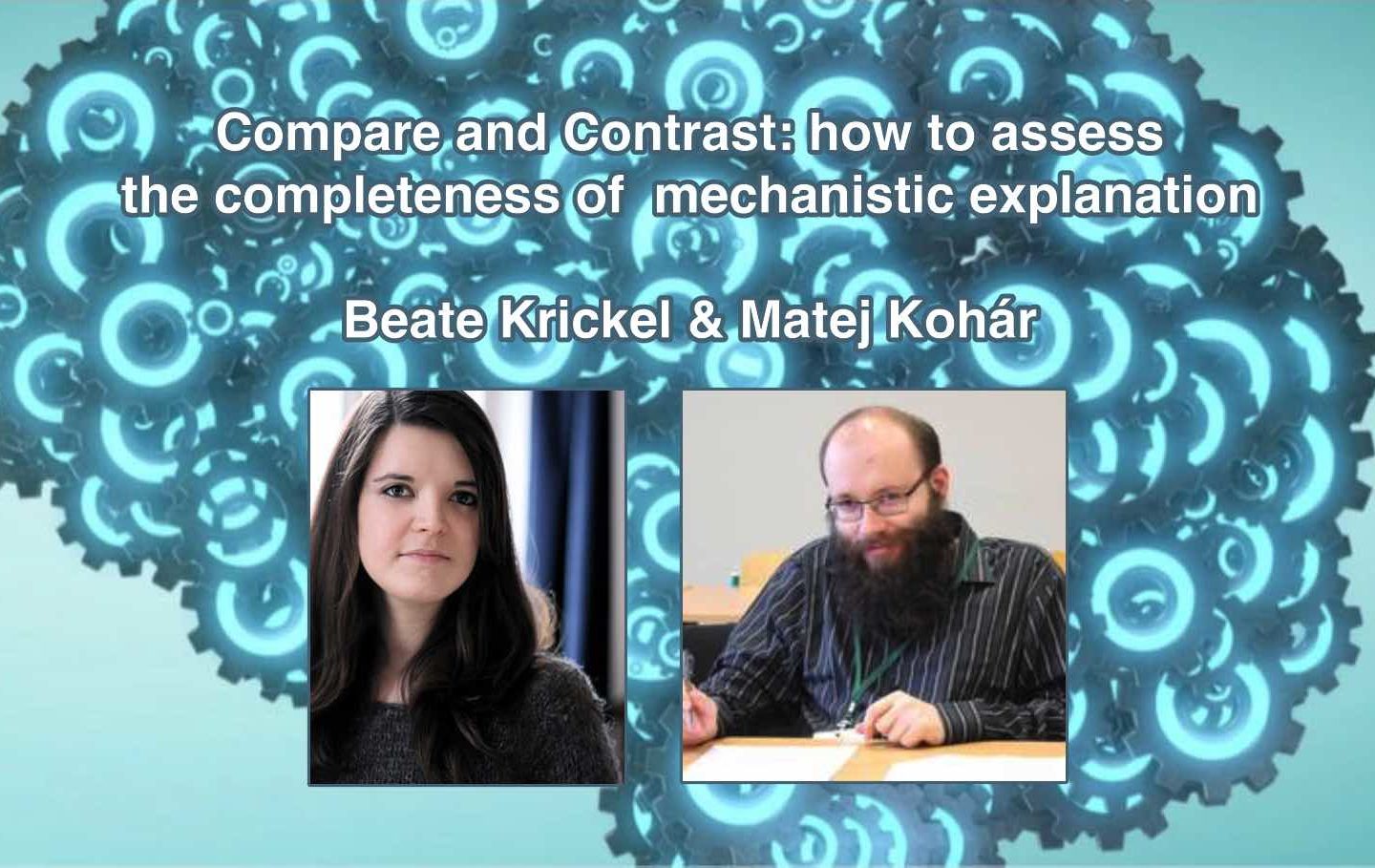We are excited about the next Neural Mechanisms webinar this Friday. As always, it is free. You can find information about how and when to join the webinar below or at the Neural Mechanisms website—where you can also join sign up for the mailing list that notifies people about upcoming webinars,
Compare and Contrast: how to assess the completeness of mechanistic explanation
Beate Krickel & Matej Kohár
(Ruhr University Bochum)
12 July 2019
at h 15-17 Greenwhich Mean Time
(Convert to your local time here)
Abstract. Opponents of the new mechanistic account of scientific explanation argue that the new mechanists are committed to a ‘More Details Are Better’ claim: adding details about the mechanism always improves an explanation. Due to this commitment, the mechanistic account cannot be descriptively adequate as actual scientific explanations usually leave out details about the mechanism. In reply to this objection, defenders of the new mechanistic account have highlighted that only adding relevant mechanistic details improves an explanation and that relevance is to be determined relative to the phenomenon-to-be-explained. Craver and Kaplan (2018) provide a thorough reply along these lines specifying that the phenomena at issue are contrasts. In this paper, we will discuss Craver and Kaplan’s reply. We will argue that it needs to be modified in order to avoid three problems, i.e., what we will call the Odd Ontology Problem, the Multiplication of Mechanisms Problem, and the Ontic Completeness Problem. However, even this modification is confronted with two challenges: First, it remains unclear how explanatory relevance is to be determined for contrastive explananda within the mechanistic framework. Second, it remains to be shown as to how the new mechanistic account can avoid what we will call the ‘Vertical More Details are Better’ objection. We will provide answers to both challenges.
Join the online session (up to 10 minutes before it begins) | Ask for the paper

